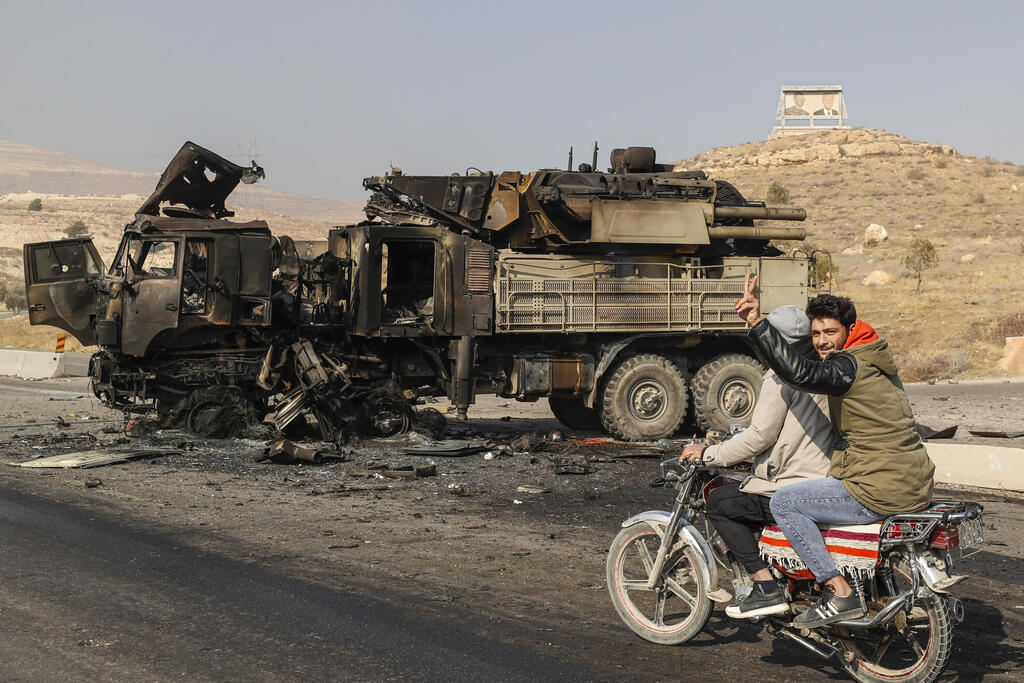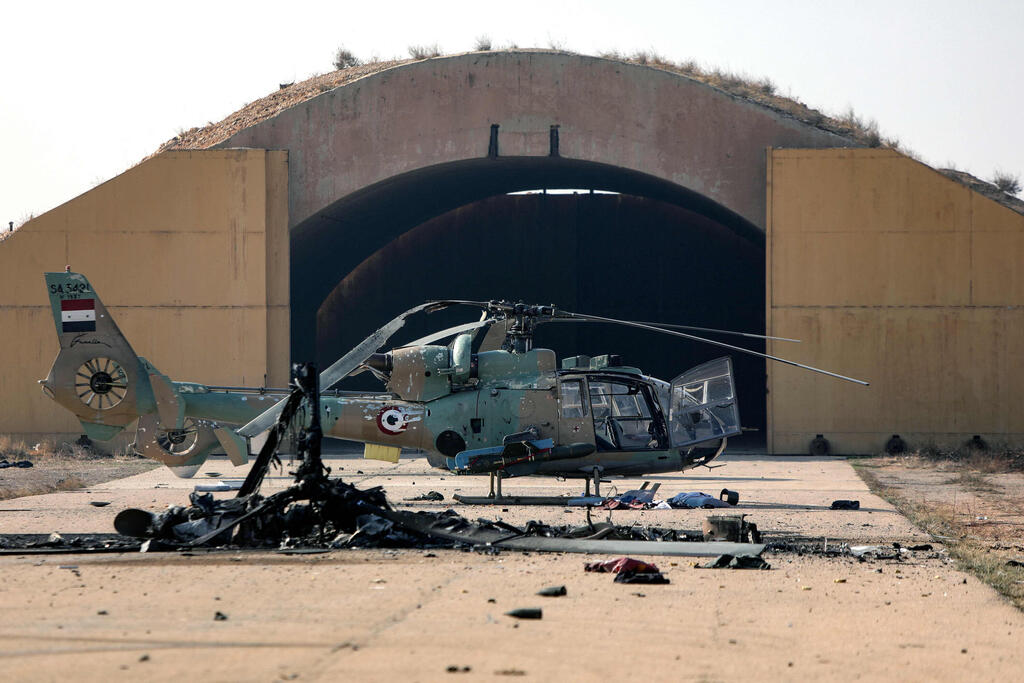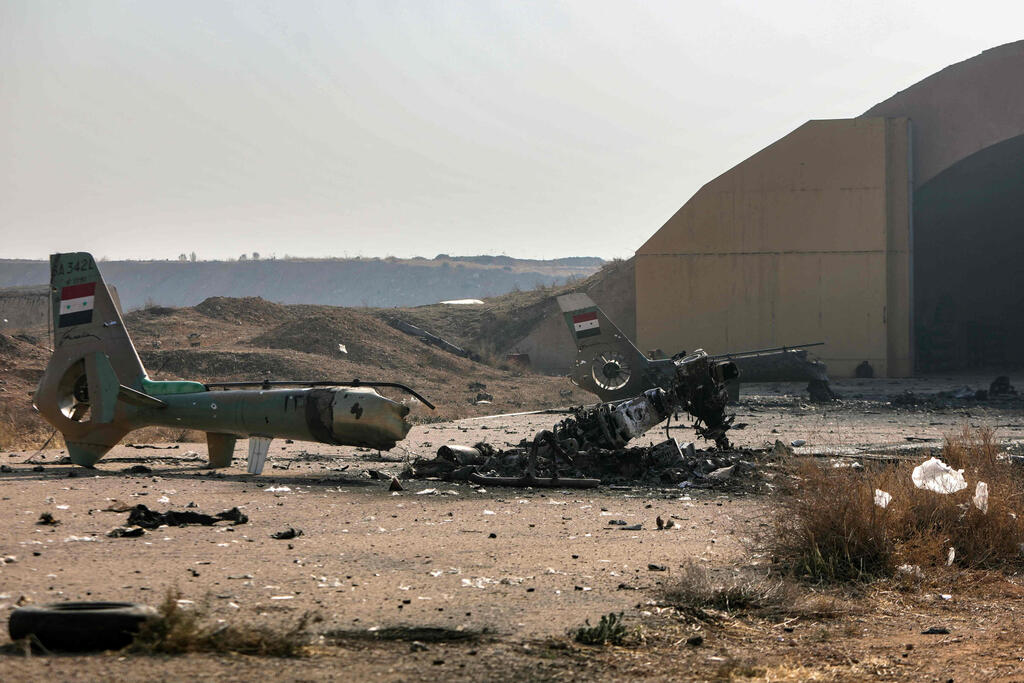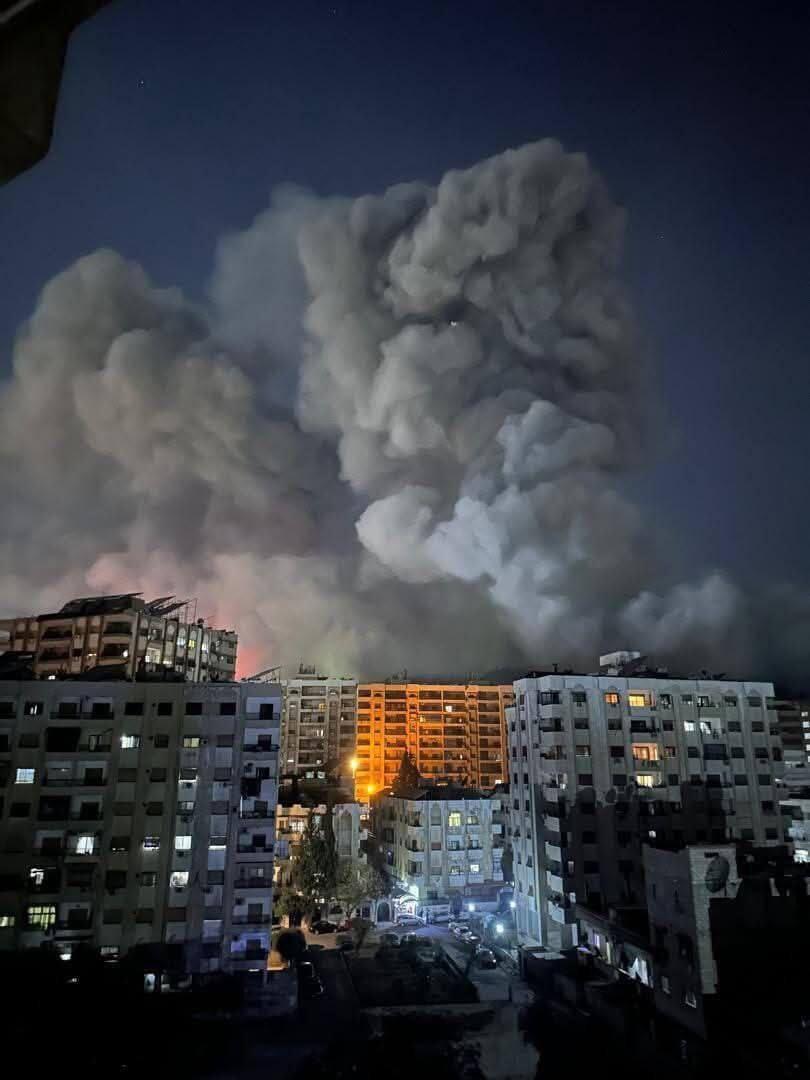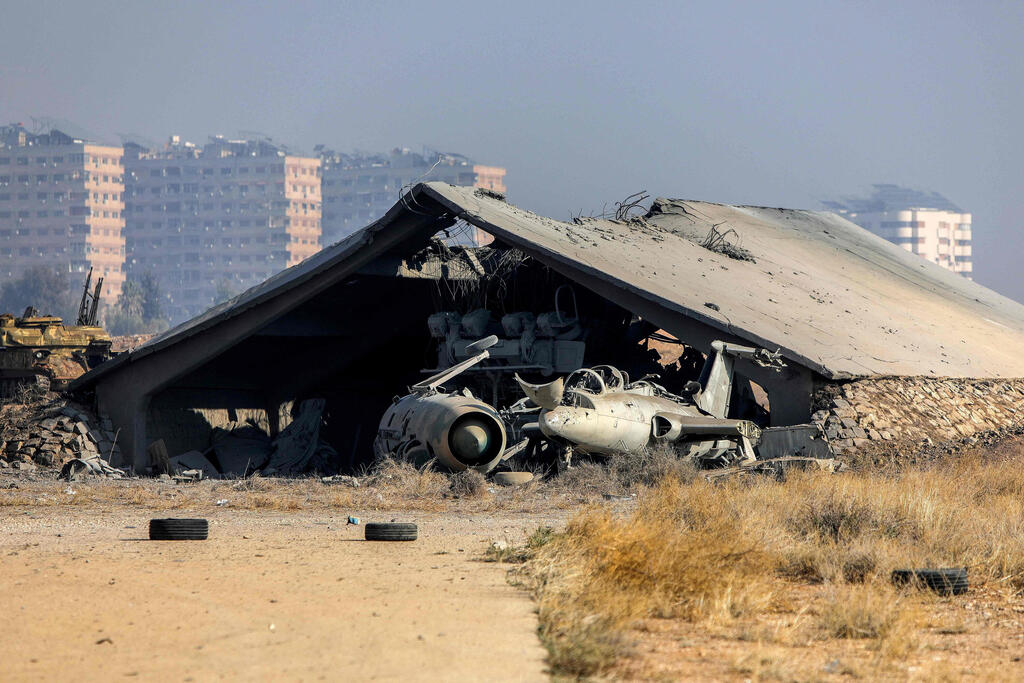Getting your Trinity Audio player ready...
Israel continues to target Syrian military assets after the fall of the Assad regime throughout Syria, so that they will not pose a threat in the future. Arab media reported widespread attacks in various areas throughout Monday as the second day of attacks. The Saudi Al-Hadath channel reported that the Israeli Air Force has carried out more than 250 strikes in Syria in the past two days - about 100 of them in a few hours on Monday evening.
attacks reported in Syria
According to Arab reports, Israel's attacks on Monday targeted fighter jet squadrons, airports, air defense batteries, weapons and ammunition depots, scientific research centers, and missile brigades in various provinces in Syria.
Two Syrian security sources told Reuters that the IDF had attacked major air force bases across Syria and that infrastructure and dozens of helicopters and planes were destroyed during the attacks.
Attacks in Damascus near scientific research center
The Assad regime has developed various capabilities over the years with the support of Russia, Iran and Hezbollah. Now, with the rebels taking over, everything it had in its possession could fall into their hands and be directed against Israel. The rebel groups are diverse, and therefore chemical weapons, for example, falling into the wrong hands such as unpredictable extremist Sunni Islamic rebels could pose a serious risk.
Arab media outlets reported Monday evening that Israel attacked the port in the city of Latakia, on the coast in northwestern Syria. According to the Saudi Al-Arabiya channel, the Syrian Navy ships were attacked. Security sources told the Reuters news agency that the attack was aimed at an air defense facility near the port. The Sabrin channel, affiliated with pro-Iranian militias in Iraq, reported that the port's defense system was destroyed in the attack.
In Damascus, explosions reportedly were heard near the Syrian Scientific Studies and Research Center where, according to reports, Iran had previously operated to produce long-range missiles and where the Assad regime was suspected of producing chemical weapons. According to the Hezbollah-affiliated Al-Mayadeen network, the center was destroyed.
On Monday, photos of the attacks against the airport in southwest Damascus on Sunday attributed to the IDF were published. Israel has previously attacked senior Iranian-Shiite figures at that location. The Saudi Al-Hadath channel reported that Israel attacked dozens of MiG-29 aircraft belonging to the Syrian army on Sunday night.
On Monday evening, another airport in Damascus was reported to have been attacked - Al-Maruhiyat in the Aqraba area. According to Al-Mayadeen's report, Israel destroyed military helicopters and attacked the Damascus countryside.
Airstrikes are defense against extreme scenarios
On Sunday night, just after midnight, explosions were reported in the 12th Brigade and the 175th Battalion of the Syrian Army, near the city of Izra, after Israel attacked weapons depots. Later, an attack was reported in the Tel Haruf area.
Meanwhile, after the IDF captured the Syrian Hermon on Sunday, the Syrian Voice of the Capital channel reported Israeli attacks in the mountainous area where the Syrian army's 4th Division operates, commanded by Assad's brother Maher Assad. The Syria TV channel, which is affiliated with the rebels, reported an attack against the 9th Division of the Syrian army on the 15th Brigade of the Syrian army. In addition, it was reported that military warehouses were attacked in the northern countryside.
Israeli officials told the Wall Street Journal on Monday that the purpose of the airstrikes in Syria is to protect Israel's borders and citizens against extreme scenarios. For example, if the new Syrian government becomes hostile to Israel it might attack. Another possible scenario is that Syria would be dragged into a long-term civil war, during which rebel groups could gain access to unconventional weapons left behind by Assad's army.
Tehran cuts off weapons and smuggling routes from Syria
A day after the fall of the Assad regime, the IDF has identified that Iran is cutting off weapons and smuggling activists from Syria so that they can survive. At the same time, the IDF is attacking and preventing weapon transfers from Syria to Lebanon. The IDF has intensified additional forces with artillery and tanks in the Golan and the buffer zone, as well as in Syrian-controlled points near the border. The Syrian army has abandoned its posts in the Syrian Golan, and the IDF has seized the weapons remaining in them.
Get the Ynetnews app on your smartphone: Google Play: https://bit.ly/4eJ37pE | Apple App Store: https://bit.ly/3ZL7iNv
In a briefing for foreign reporters, Foreign Minister Gideon Sa'ar said: "What guides us is the security of the State of Israel and its citizens. Therefore, we attacked strategic weapons arrays, residual chemical weapons capabilities, long-range missiles and rockets so that they do not fall into the hands of extremist elements." Sa'ar also confirmed that Israel is talking to officials in the country: "We have contact, of course, with the Kurds and Druze in Syria."






